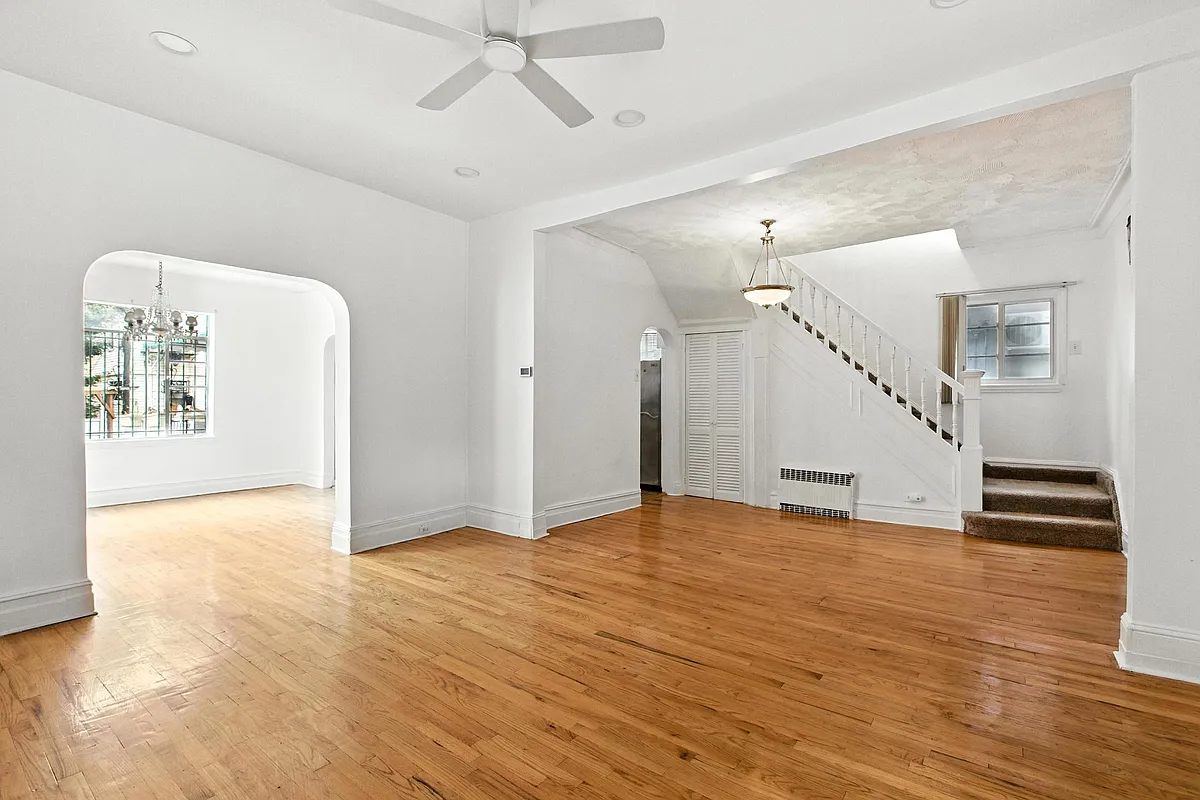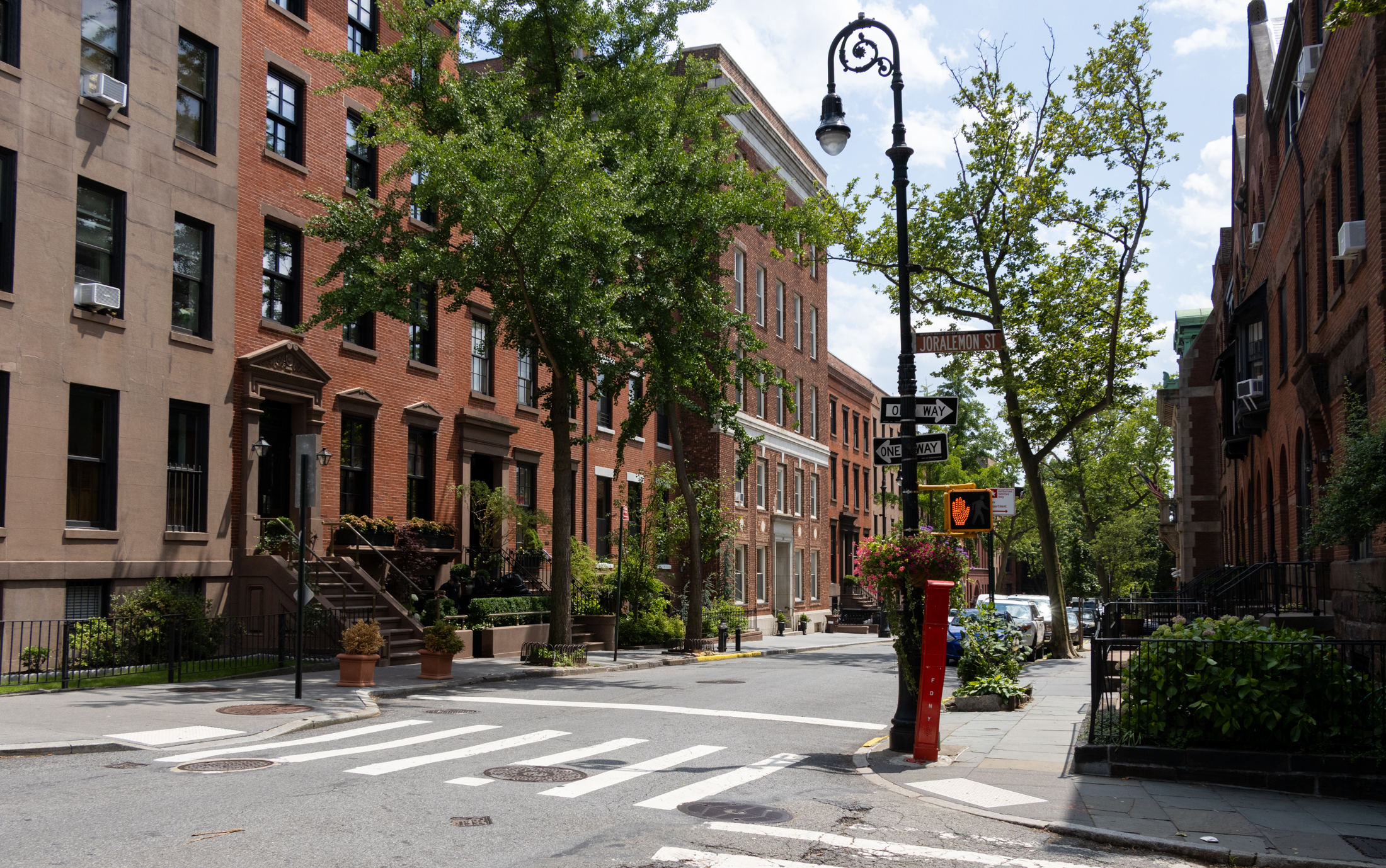The Ripple Effect of Northside Piers' Price Cuts
When Toll Brothers slashed prices at Northside Piers’ Tower 1 back in February, the effects rippled through the oversaturated Williamsburg condo market, reports The New York Post. The cuts took prices from a pre-market-slide average of $900 a foot down to about $700. “When they dropped those prices, they made anyone inland have to look…


When Toll Brothers slashed prices at Northside Piers‘ Tower 1 back in February, the effects rippled through the oversaturated Williamsburg condo market, reports The New York Post. The cuts took prices from a pre-market-slide average of $900 a foot down to about $700. “When they dropped those prices, they made anyone inland have to look at their prices,” explains David Maundrell, head of Aptsandlofts.com. “We had to be realistic and do what Toll Brothers is doing because it’s only a matter of time before buyers realize they can buy for $650 [per square foot] near the water.” For, example, at the Evry, a new 14-unit development AptsandLofts is marketing at 273 Manhattan Avenue, prices are under $600 a foot.
Will of the People [NY Post]





Deflation makes hard assets, like gold and other commodities, cheap now. Inflation will make them expensive later and thus profitable in real terms if you buy ’em now. So I don’t agree that you shouldn’t worry about or act against inflation now. I’d say a mix, like half cash, half commodities (especially real tangible gold). An inflation problem is all but inevitable.
***Bid half off peak comps***
Thanks, FinanceGuy.
I always enjoy your take on things.
FinanceGuy knows what he is talking about.
If you think you should be worried about inflation, remember that what is happening now is deflation. These cycles are slow. When inflation comes back then you can worry about it. In the meantime protect yourself against immediate deflation rather than planning for eventual reinflation.
Benson: Inflation is very good for debtors, so if you think inflation is coming in a big way, you might want to get in debt.
The easiest way for small scale investors to do that is to take out a mortgage. However, I wouldn’t buy an overpriced house just to get a mortgage. Coming out of a bubble, inflation would likely make REAL house prices drop faster: sellers will resist the inevitable drops less if they are only in real, not nominal, dollars. Or put differently, there is no reason to imagine that an overpriced house will go up with inflation. It’ll just stay still until the underlying costs (rents/construction) catch up.
However, before planning an investment strategy based on runaway inflation, keep in mind that the Fed is fairly powerful and deeply dedicated to restricting inflation, at least when it reaches ordinary wages. The Fed knows it can always raise interest rates as high as necessary to create a recession big enough to squelch inflation, and it has demonstrated that it is willing to do so. So a bet on runaway inflation is a bet on major political change: that the Fed won’t use the tools it knows best in the cause it believes most in.
I’m not very good at predicting macro stuff, but if I were in a pessimistic mood, I’d be more inclined to worry about (1) deflation (because that is what is happening now, and the Fed doesn’t have guaranteed-to-work tools to deal with it), and (2) a dollar collapse (because we buy more from abroad than we sell, and eventually the manufacturing countries will want to paid for the stuff they’re selling us, which means we need to sell more, which means the dollar has to get cheap enough that our exports are competitive).
Deflation makes debt extremely painful: it’s hard to pay back a loan when the asset backing it, and the income that is supposed to pay it, are dropping. It’s deflation that put the Great in the Great Depression. If we head that way, you want to have lots of cash and to stay employed and to pray the government acts decisively.
A drop in the value of the dollar strikes me as unavoidable. We can’t buy more than we sell forever. But it is largely a matter of market psychology and Chinese domestic politics whether the drop will be deferred until the recession is over and then be comfortably gradual, or come as a sudden whoomp one weekend in the near future.
I have no idea what the impact of dollar drop or collapse would be on NY real estate. I guess our tourism business would go up, and our houses and investment banks would be cheaper for foreigners to buy, which might increase demand, but on the other hand any foreigner already invested in NY would lose money, which might make others worry about investing here, and decrease demand. Medium term, it’d help manufacturing in the US, which would probably hurt NYC relative to other US cities that still make things. How big would the relative impacts be? I don’t know, but even if demand increases, it is unlikely to revive the bubble.
Inflation, deflation or dollar collapse — there is no reason why home ownership should cost more than renting a comparable space. On the contrary, if people are worried about any form of economic instability, the price of economic assets — especially NYC real estate that is valuable/habitable only if the government functions well — should drop. Fearful people rent.
GWH:
Zoning can’t explain why owner-occupied properties are more expensive than rentals. We don’t have any significant zoning restrictions on changing one into the other.
If zoning really restricts building in NYC more than elsewhere (which is not clear to me: we have high rises and mass transit, which suggest that it might be easier to build densely here), it would help explain why NYC is more expensive than unzoned regions.
But I didn’t argue that NYC is overpriced relative to less zoned areas. I don’t know how to value the relative attractiveness of cities enough to do that.
(The more standard term is equilibrium price, but I wanted to emphasize that the argument is asymmetrical. There are strong market pressures preventing prices from staying above the equilibrium price, where owner’s price = rental investor’s price = marginal cost of production = marginal cost of conversion/rehab, for long. The pressures preventing it from staying below that point are far weaker.)
Finance Guy,
I’d suggest taking a look at Ed Glaeser’s “Why is Manhattan So Expesnsive” from 2004. Glaeser suggests that land use restrictions prevent home prices from reaching what you call the equilibrium ceiling (I hadn’t heard that term before).
i actually read the article in the paper first and thought it was one of those “just taking up space articles” that’s pointless. no kidding, real estate is down and the economy sucks. why write this even?
if you are seriously shopping for a condo, i’d say look for bldgs with c of o’s that already have people living in them, and make a crazy low offer if you love the place.
seeing as the Edge isn’t even finished, i wouldn’t compare it to northside one. northside one has some good deals, and if you could get even lower, i’d say that it’s going to have a big upside in the 5 year plus plan.
they do have some family sized apts, and is zoned for ps 17 which is a decent school. also, it’s an easy trek down kent to greenpoint to send the kids to PS31 which is terrific.
it’s also close to williamsburg northside pre-school on N.5th.
had their giant townhouses been this cheap and available when we were looking, would have bought one. they are huge.
$500 sq ft at Edge is a good price but given we KNOW the developer is screwed timing-wise, think we need to be greedier – hold out for $400 sq ft
But lechacal, exactly what form of gold are the ads selling? There are a lot of scams out there for the elderly. Real gold bullion is almost a certain hedge against hyperinflation. Don’t forget what used to back the dollar. Debt/IOU’s as a backer is not working right now.
And inflation can’t “save” home prices. You still have to adjust the dollar amount of your latest appraisal or comp to that of the year that you purchased it. If you bought in 2007, you have to adjust the dollar amount of your sale price, whenever you sell, back to 2007 dollars. It’s the real value that matters.
***Bid half off peak comp***